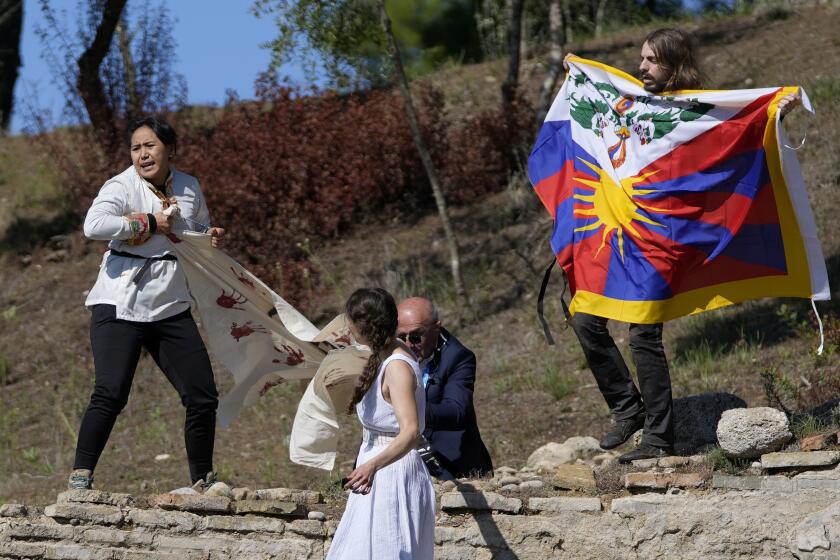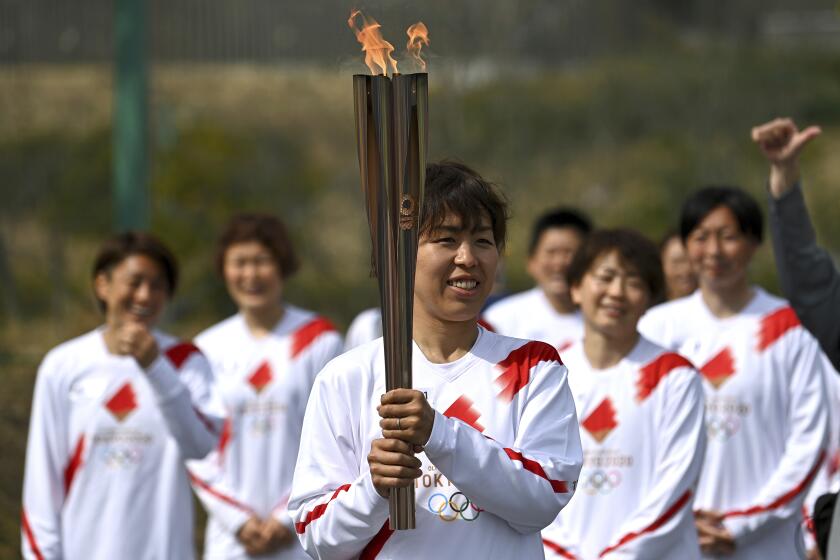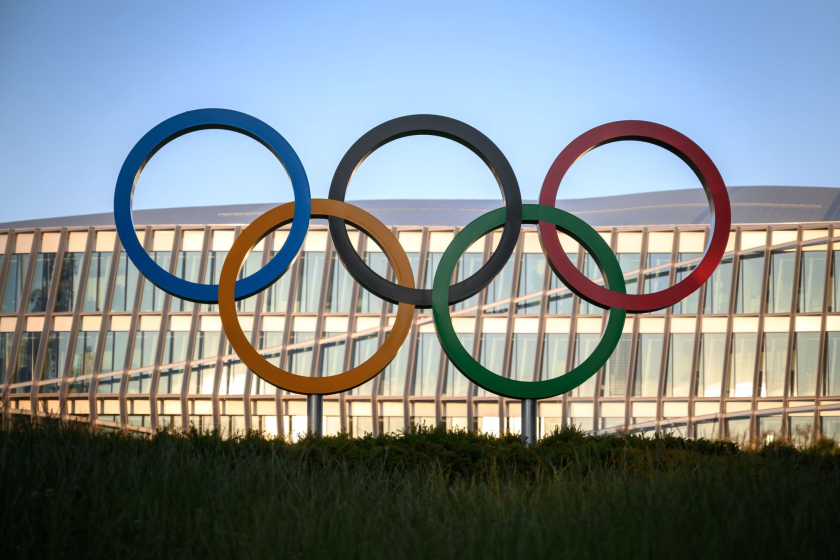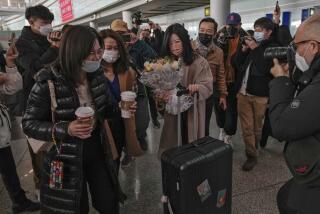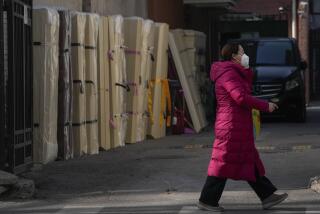China limits its Olympic torch relay to just three days amid coronavirus concerns
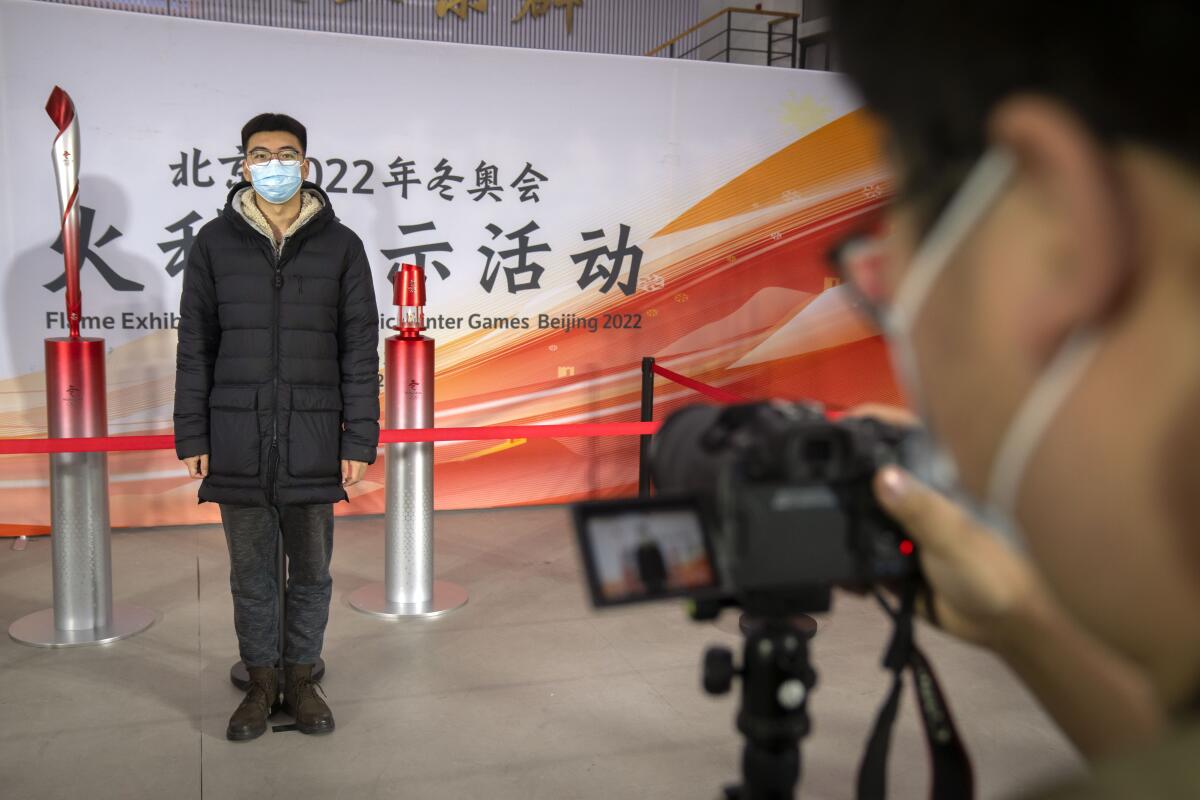
- Share via
BEIJING — China is limiting the Olympic torch relay for the Beijing Winter Games to only three days amid coronavirus worries, organizers said Friday.
The flame will be displayed only in enclosed venues deemed “safe and controllable,” according to officials.
No public transit routes would be disturbed and normal life would continue for the 20 million residents of the Chinese capital, where a handful of new coronavirus cases have been recorded over recent days.
Beijing’s deputy sports director, Yang Haibin, said safety was the “top priority,” with the pandemic, venue preparations and the possibility of forest fires in Beijing’s cold, dry climate all factored in.
The relay will run Feb. 2-4, taking in the three competition areas of downtown Beijing, the suburb of Yanqing and Zhangjiakou in the neighboring province of Hebei.
The Games have already been impacted on a scale similar to that experienced by Tokyo during last year’s Summer Olympics.
Three protesters broke into the site of the flame-lighting ceremony for the Beijing Winter Olympics holding a banner that read: “No genocide games.”
China says only selected spectators will be allowed to attend the events, and Olympic athletes, officials, staff and journalists are required to stay within a bubble that keeps them from contact with the general public.
The opening of the Games falls just days after the start of the Lunar New Year holiday, China’s biggest annual celebration, when millions of people traditionally travel to their hometowns for family reunions. For the second year, the government has advised those living away from home to stay put, and train and plane travel has been curtailed.
Participants in the torch rally will undergo health screens and be carefully monitored, starting from two weeks before the event begins, said Xu Zhijun, deputy head of the organizing committee.
Beijing reported its first local Omicron infection Saturday, and 11 cases had been confirmed in the capital as of Thursday afternoon, the official Xinhua News Agency reported.
The torch relay for the Tokyo Olympics has begun, a 121-day journey across Japan that will end in the capital for the July 23 opening ceremony.
Outside Beijing, several million people remain under lockdown as part of China’s zero-tolerance approach to dealing with the coronavirus.
Numbers of new cases have dropped substantially in recent days amid strict adherence to masking, travel restrictions and school closures, along with a vaccination rate that now tops 85%. But some medical experts worry that a lack of exposure to the coronavirus could harm the Chinese population’s ability to deal with future waves of infection.
The scaled-down torch relay is a far cry from 2008, when Beijing sent the Olympic icon on a global journey ahead of its hosting of that year’s Summer Games. The relay drew protesters against China’s human rights violations and policies in Tibet, Xinjiang and elsewhere, leading to violent confrontations and the cancellation of some overseas stages.
The Winter Games have been beset by similar political controversies, alongside medical considerations.
Taiwan objects to being on the ‘domestic’ leg of the 130-day journey.
Six weeks ago, the United States, Britain and several allies said they would not send dignitaries to attend the Games as a protest against human rights abuses by China’s Communist regime.
Athletes have been threatened by the organizing committee with “certain punishments” for saying or doing anything that would offend their Chinese hosts, while several delegations urged anyone headed to Beijing to take “burner” phones instead of their personal devices because of concerns that their personal information could be compromised.
The National Hockey League cited uncertainty caused by the pandemic in holding back all of its players from the Olympic tournament.
And earlier this week, NBC said it would not be sending announcing teams to China, citing the same coronavirus concerns raised when the network pulled most of its broadcasters from the Tokyo Games.
More to Read
Sign up for Essential California
The most important California stories and recommendations in your inbox every morning.
You may occasionally receive promotional content from the Los Angeles Times.
